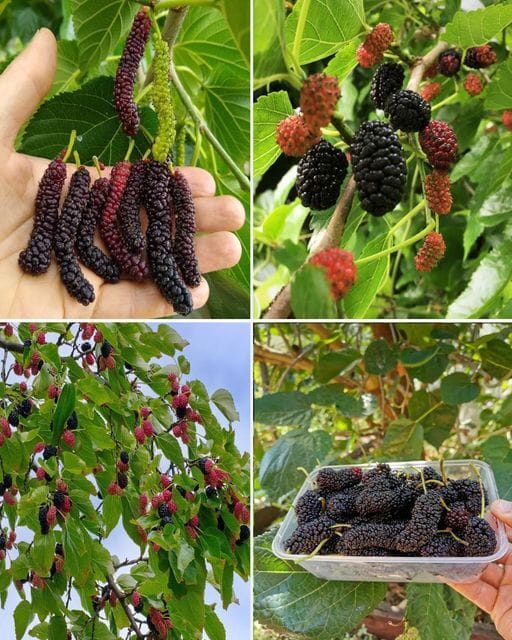ADVERTISEMENT
Nutritional Powerhouse
Mulberries are packed with essential nutrients. They are rich in vitamins C and K, iron, potassium, and fiber. They also contain powerful antioxidants like resveratrol, which can help protect against various diseases. Including mulberries in your diet can boost your immune system, improve digestion, and contribute to overall health.
Easy to Grow
One of the most appealing aspects of mulberry trees is their low maintenance. These hardy trees thrive in a variety of soil types and climates. They are drought-tolerant once established and generally pest-resistant, making them ideal for homesteaders looking for a resilient crop. Plant your mulberry tree in a sunny spot, water it regularly until it is well-established, and you’ll be rewarded with abundant fruit.
High Yield
Mulberry trees are prolific producers. A single tree can yield an impressive amount of fruit, providing more than enough for fresh eating, preserving, and sharing with friends and neighbors. The berries ripen over an extended period, allowing for a continuous harvest throughout the season.
Versatile Uses
Mulberries can be enjoyed in numerous ways. Eat them fresh off the tree, add them to smoothies, bake them into pies and muffins, or make delicious jams and jellies. They can also be dried for a nutritious snack or used in winemaking. Their versatility in the kitchen makes them a valuable fruit for any homesteader.
Beneficial for Wildlife
Mulberry trees are not only beneficial to humans but also support local wildlife. Birds, in particular, love mulberries and will flock to your tree during the fruiting season. This can be a joy for bird watchers and helps support biodiversity on your homestead.
ADVERTISEMENT
